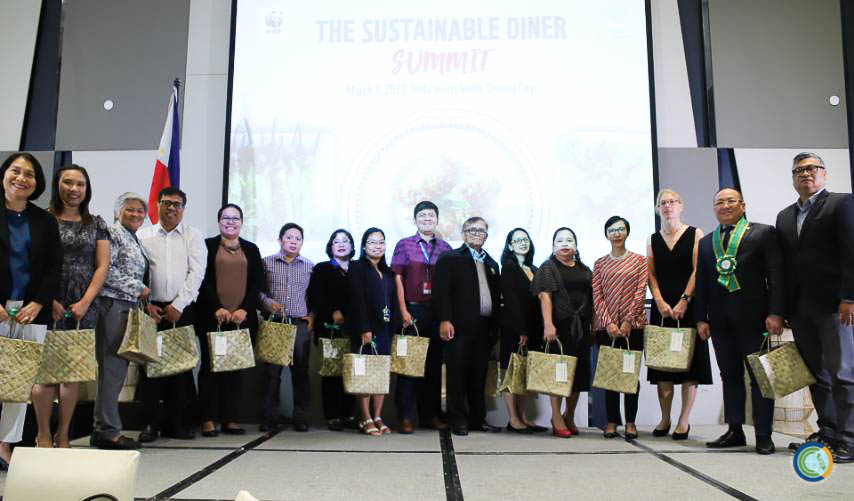QUEZON CITY, 4 March 2020 – The Climate Change Commission (CCC) urged the pursuit of efficient and sustainable practices in food production and consumption during the Sustainable Diner Summit 2020 in Seda Vertis North.
In his message, Climate Change Secretary Emmanuel M. De Guzman said that around 25 to 30 percent of total greenhouse gas emissions are attributable to the food system, including food waste. This calls for more efficient and sustainable use of natural resources in food production, promotion of less meat-intensive diets toward one that is plant-based, and reduction, if not elimination, of food waste.
With food security as one of the thematic areas of the National Climate Change Action Plan, De Guzman said that the CCC is committed to assist the food sector in transitioning into a low-carbon and sustainable industry.
“We are pursuing the development of national and local policies that will create an enabling environment for sustainable food value chains. We are finding pathways to combine supply-side actions such as efficient production, transport, and processing with demand-side interventions such as modification of food choices, and reduction of food loss and waste,” said De Guzman.
Aside from these, CCC is also developing green building standards as well as promoting the greening of hotels, resorts and hospitals. With its mandate from the Green Jobs Law, the CCC is advancing green jobs with the ambition of transforming sectors and industries into low carbon and green economy, in parallel with its formulation of the country’s first Nationally Determined Contributions (NDC).
The Philippines’ NDC, a document that will communicate the country’s ambition for reducing carbon emissions on the basis of equity and in the context of sustainable development and poverty reduction, is being prepared in close coordination with the National Economic and Development Authority, Department of Agriculture, Department of Environment and Natural Resources, Department of Transportation, and Department of Energy, along with the academe and civil society.
De Guzman also shared the importance of investing in a climate-smart future by mainstreaming climate change in development planning and investment programming.
“Sustainability and climate-friendly development are where the smart money is headed for. Years of technological and policy innovation have created a completely new playing field for investments. Climate solutions are now often cheaper and provide greater socio-economic returns than carbon-intensive alternatives,” said De Guzman.
This Sustainable Diner Summit 2020 is part of The Sustainable Diner Project, funded by the German Federal Ministry for the Environment, Nature Conservation, and Nuclear Safety (BMU) as part of their International Climate Initiative (IKI), and implemented by the World Wide Fund for Nature-Philippines.

